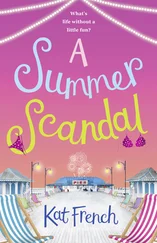If tar was the automobile driver’s grim trade-off for pumping oil up from the ground, so were the skeletal black oil towers on Signal Hill and the churning refineries off Sepulveda Boulevard, with their tall, cigar-shaped towers that spit white smoke and all those acrid smells into the sweet California air. A popular joke regularly ran through the LA nightclubs that Southern Californians paid the prices for their automobiles in dollars and scents.
But the truth was, people spent money on cars for mobility and freedom, so they could be in control of where they went and when. They bought homes because they liked to think they owned a piece of a place where the sun shined most of the time and movie stars lived large and died tragically.
The coastal resort town of Newport Beach was all prime property. The ocean was clean, the sand fine as sugar, and there was no litter anywhere. Pristine white yachts pulled into private docks along the isles, where sprawling California-style homes carried addresses as distinctive as those in Beverly Hills. Whenever the Santa Ana winds blew in, the scent from the eucalyptus trees above Highway 1 cleared the sinuses better than Bano-Rub, a petroleum-jelly-and-camphor mixture that helped launch Banning Oil into the petroleum by-products industry and gave Victor Gaylord Banning enough money to buy up a chunk of Newport’s exclusive Lido Isle with hardly a dent in his bank accounts.
It was a Thursday afternoon, maybe three o’clock, and Victor was home in the middle of the day, facing a wall of windows—all that stood between him and the civilized edges of the wide blue Pacific. He stared at his reflection in the glass, seeing only the physiognomy of the one person he vowed he would never become. His father had been weak, unable to succeed in anything except failure.
Victor grew up in a house of discontent, with only his sister, Aletta, as champion against a mother whose elusive approval he could never capture, because she saw in Victor only his father standing there in miniature, a constant reminder of her bad choices. It was Aletta who paid the biggest price for their father’s failures. She died a useless death when there was no money to save her, and Victor was abandoned by the one person he depended upon.
For his mother, Aletta’s death was complete devastation. She couldn’t bear to look at the only child left, so she would lock him in the closet for hours. Eventually she saw suicide as the only release from her agony. She didn’t want to live in a world with only her weak husband and his look-alike son, who, try as he might, would never be a substitute for the girl child she truly loved. To Victor’s complete dismay, he cried for days after his mother killed herself, unable to control his emotions. The Banning legacy was jagged and sharp and part of him, no matter how he tried to prove otherwise.
Today, his cheeks and eyes were proof that sleep escaped him. He hadn’t shaved since yesterday, when he went to identify the bodies of his son and daughter-in-law, filed in long stainless steel cabinets at the LA morgue. Until a few days ago, he hadn’t seen or spoken to his son, Rudy, in almost ten years. His only source about anything in Rudy’s life had been Rachel. What Victor was feeling at that very moment—had he allowed it inside—would have brought him to his knees. Grief was crippling. Allowed in, it made the strong weak.
At the sound of his Town Car pulling in, he moved to a narrow window where he could see the driveway through the waxy leaves of a fat camellia bush. Next to his Lincoln the boys stood side by side, wearing similar striped T-shirts and stiff new jeans cuffed up. Although four years apart, they looked like Bannings: blond hair, square jaws, and wide mouths, all inherited from his own grandfather. Their skin was pale, their expressions thinly serious, and they had their mother’s thick, dark eyebrows. Cale, the younger, took hold of Jud’s hand. They looked like bookends that didn’t quite match.
Victor saw only their vulnerability, as they clung to each other like scared little girls. They would never be able to stand on their own. Rachel had ruined them. He’d seen enough and walked away, wondering exactly what he would have to do to turn them from pussy little boys into the men they needed to be to make it in his world.
Soon he heard the hushed voices of the help, and the hurried steps in the entry hall of children he had never spoken to. His driver came into the room, his chauffeur’s cap in his hands. “Your grandsons are here.” Harlan wasn’t a huge man, but he was stronger than an ox and looked a little like one. He was an ex–middleweight boxer with a flat, broken nose and porcelain front teeth Victor had paid for. “Do you want me to take the boys upstairs?”
“No. I’ll be out in a minute. They didn’t give you any trouble?”
Harlan shook his head. “They sat in the backseat whispering about riding in the limousine. Thought it was pretty special.”
“Is the MG back from the paint shop?” Victor asked.
“Yes sir.”
“Check the paint job on the running boards and the hood.”
“I checked it this morning.”
“Good.” His son had loved the MG, but that had been back in the days before Rudy threw the car keys at him and walked away from everything Banning. “Let the boys wait in the entry for now,” Victor said evenly. “I’ll be out soon.”
Harlan left, and Victor poured a scotch, wanting to be somewhere else—a sweeter time—the few in his life he could count on one hand. Under his feet, the wood floor creaked, and he looked down at the hairpin edges of a trapdoor to the fallout shelter, something his architect insisted he needed. But it was a useless hole in the floor that did nothing to protect him from the real fallout of his life: his son had died hating him. A scotch didn’t help. Mistakes wouldn’t dissolve in alcohol—although Rudy had certainly tried. So Victor remained there, his feet on the cracks of the trapdoor, a useless drink in his hand, facing the largest ocean in the world and the worst of his sins.
Cale Banning stood with his older brother in the hallway of a strange house, in a strange neighborhood, waiting to meet a stranger—the grandfather he’d never known he had until a few hours ago. Their suitcases and toys were piled up in the hallway, stacked in a hurry and looking as confused as he felt. He tugged on his brother Jud’s shirt. “How come I don’t remember this grandpa? Why wasn’t he ever around? Didn’t he like us?”
“Who knows?”
Cale stared at their things and thought they looked like they didn’t belong there.
Jud sat down on the stairs, his elbows on his long skinny legs, his hands hanging between his knees. “I remember his car,” he told Cale. “I saw it drive away from the house a few times.”
“Did you ever see him?”
“No.”
Cale searched the hollow room for something familiar. High on the wall above the staircase was a window of colored glass, like in church. “Look up there.”
“I saw it,” Jud said distractedly. “It’s one of Mom’s paintings.”
Cale studied the painting hung near the stained-glass window; it was huge. Once, when he’d asked his mother why she painted so big, she told him large canvases had bigger things to say, and he wouldn’t understand until he was older, so he should ask her again when he was Jud’s age. He looked at Jud. “Do you know why Mom painted big pictures?”
“No.”
“It’s supposed to say something.” Cale studied the colors of red and blue, green and yellow slashed across the painting above him. Her studio had never been off-limits. She usually smelled of something called linseed oil and her clothes were covered in paint splotches that made about as much sense to him as the paintings did. But inside her studio, the two of them would drink bottles of Coca-Cola, eat egg salad sandwiches and Twinkies, and she would talk to him while she painted with huge long strokes of color that involved her whole body and seemed to make sense only to her. As she stood back and away from her work, she told him there were messages in art about life and the way people thought and felt, that sometimes the messages were hidden, secrets only some had the eye to see, but the soul of the artist was always there if anyone chose to look close enough.
Читать дальше












